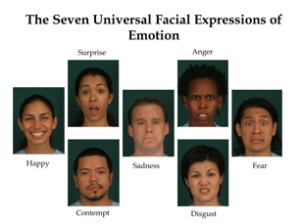
© Jason Stitt | Dreamstime Stock Photos
Is the attractiveness of a person’s face impacted by the facial expression they make ?
Most people think that smiling makes a person look more attractive. Is this really true?
Researchers at the University of Portsmouth in the UK decided to test the theory and find out not only if attractive people are more attractive when they smile but if attractive people look less attractive if they show anger or displeasure.
They also tested the theory on unattractive people to see if it goes both ways. They studied whether unattractive people would be considered more attractive if they smiled.
Medical Xpress outlined the results of this research, which is published in the Journal of Nonverbal Behavior.
Participants viewed photographs of various individuals making one of the seven universal facial expressions of emotion (anger, sadness, happiness, fear, disgust leaving out contempt).
Most of the participants rated people as attractive regardless of the facial expression they were making. Interestingly, this worked for the unattractive people as well. They did not do better when smiling leading to the conclusion of the study; the facial expression a person makes does not affect how attractive they are perceived to be by others.
The researchers were eager to point out that facial expressions are more likely than not to still play a role in helping people decide whether someone is approachable.
Do YOU change your notion of attractiveness when you see someone with an angry expression OR
Does the study’s results make perfect sense ?

